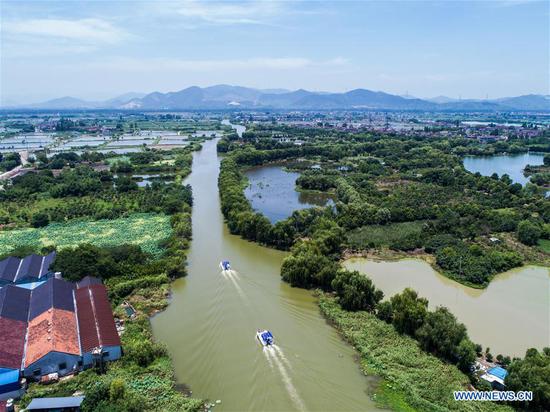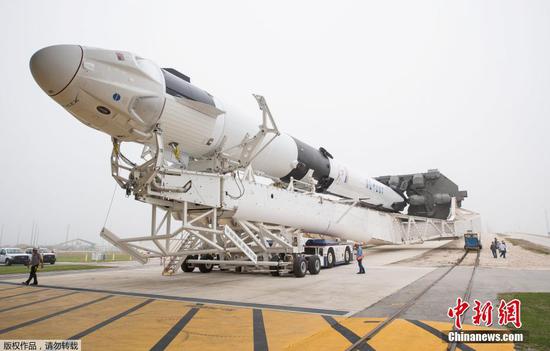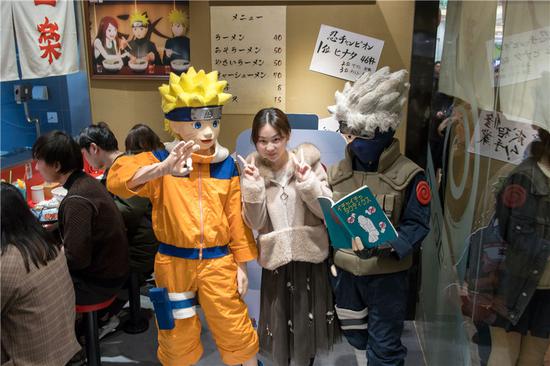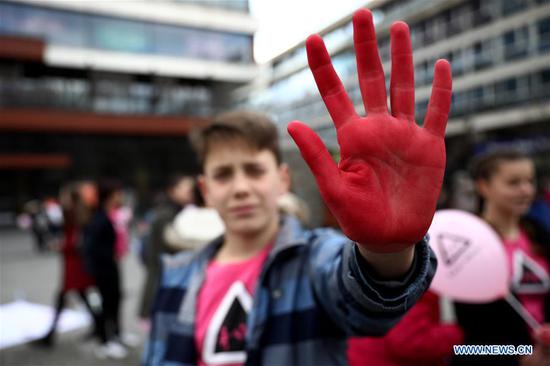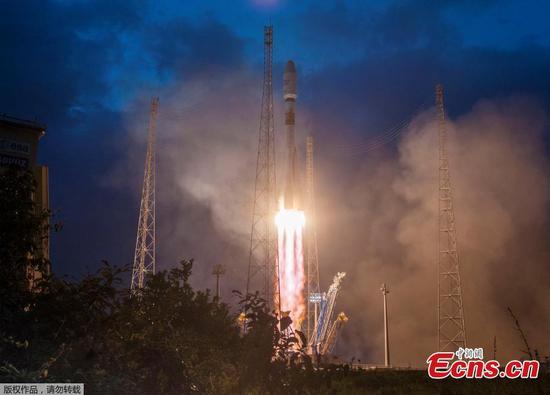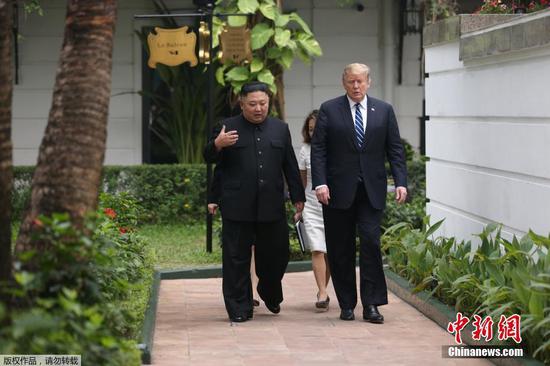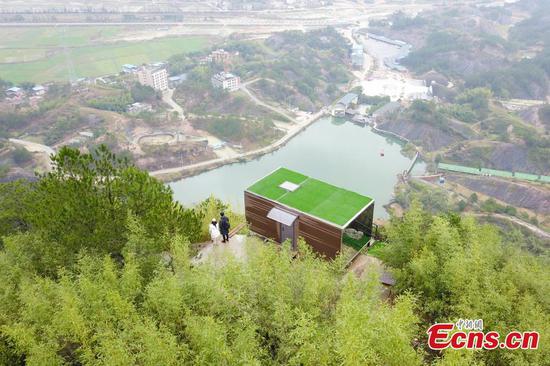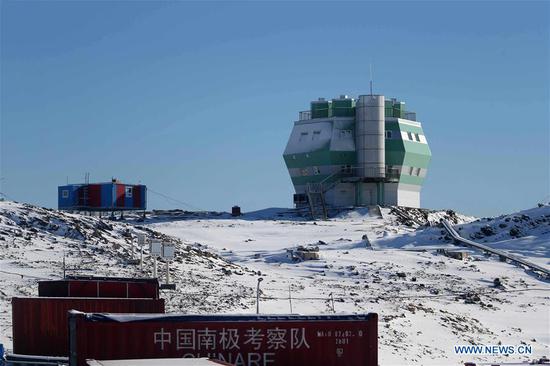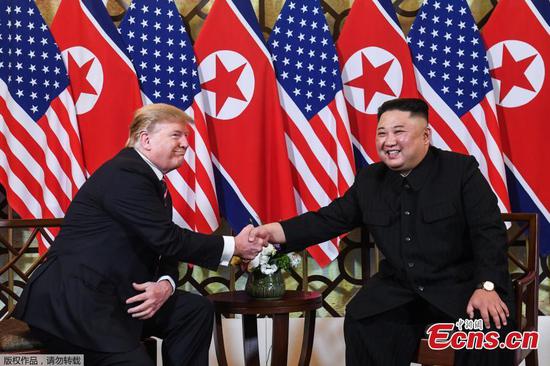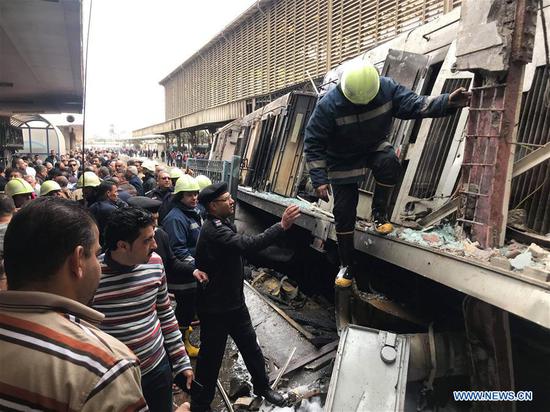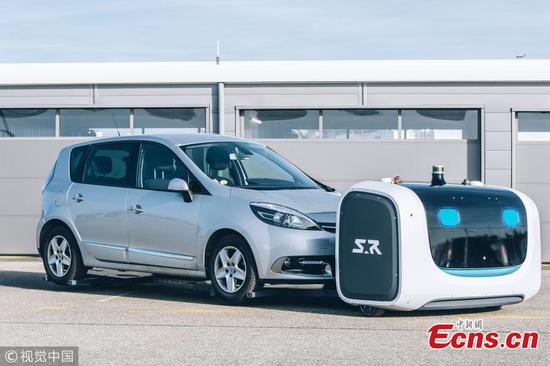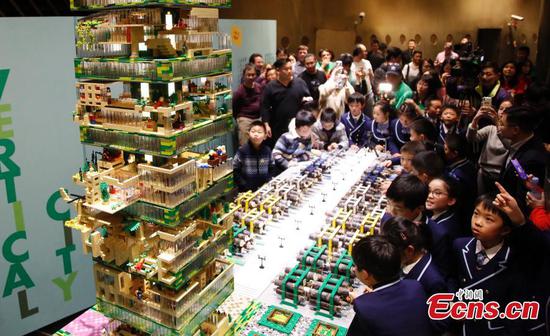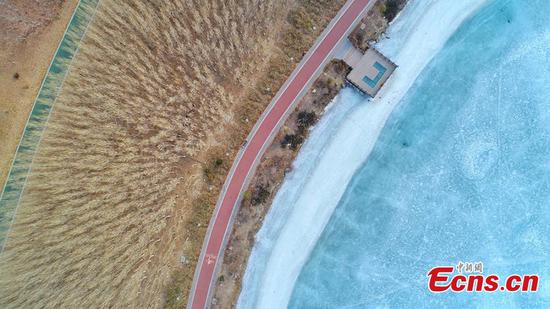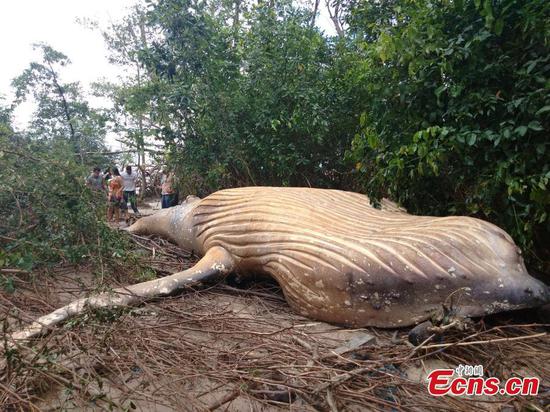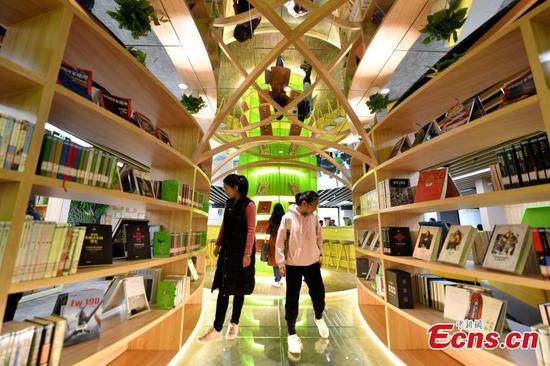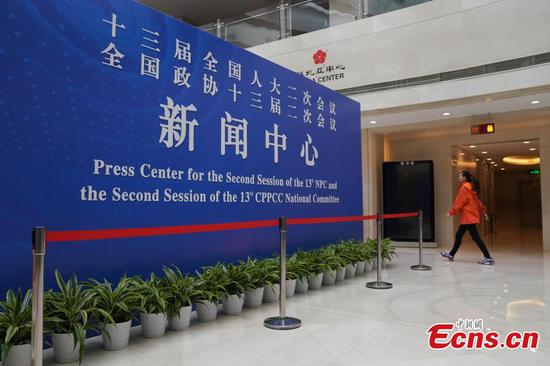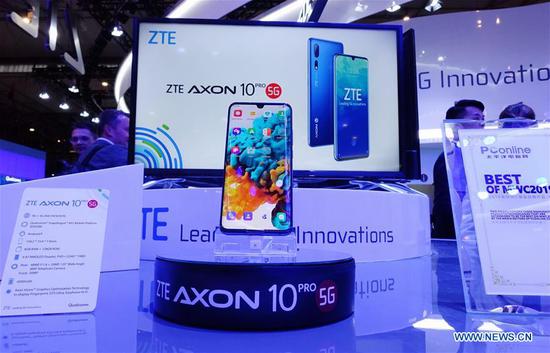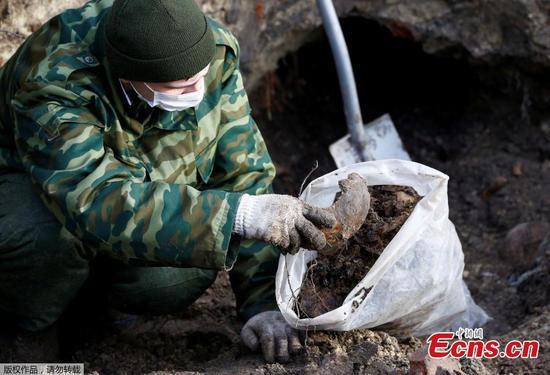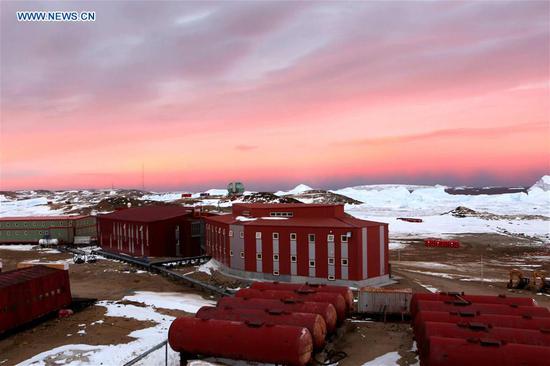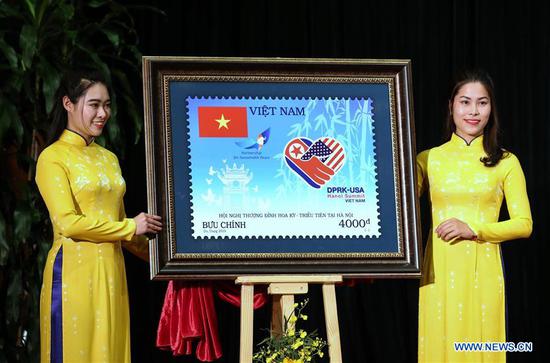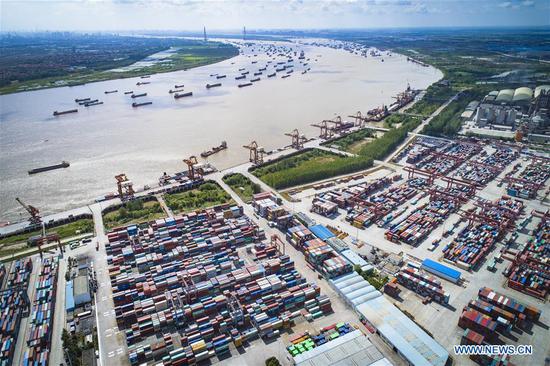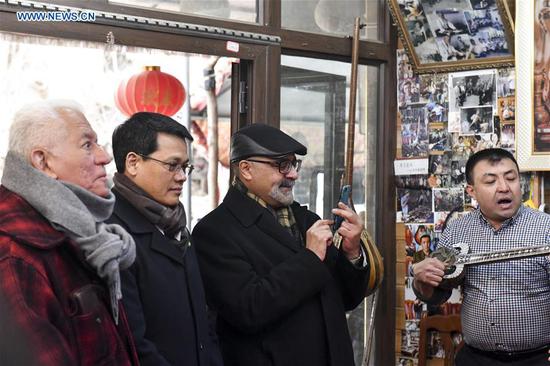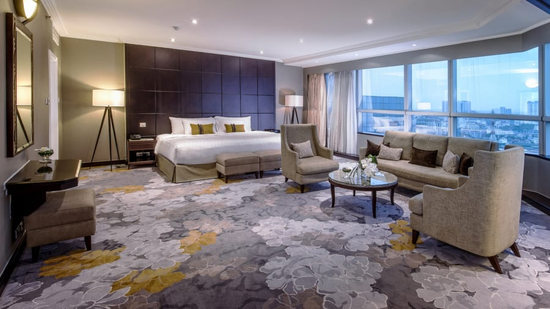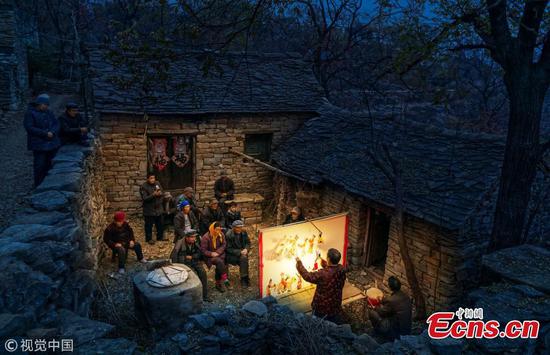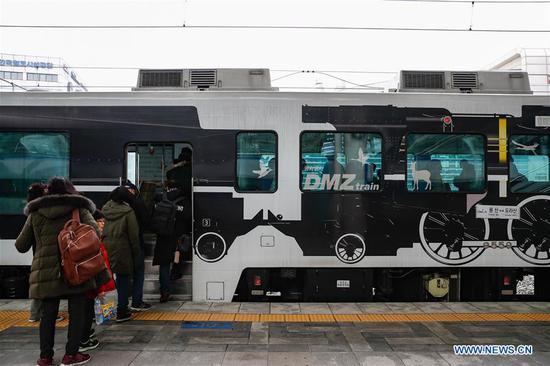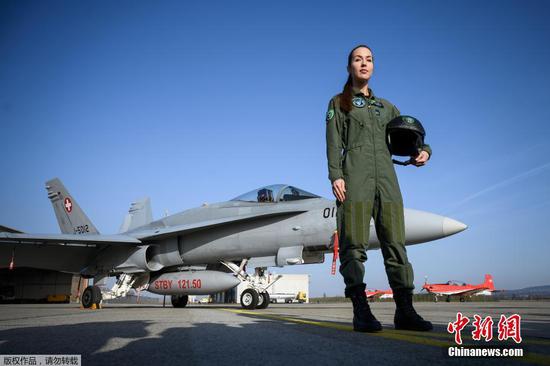DPRK leader Kim Jong-un and U.S. President Donald Trump canceled a planned working lunch after failing to reach an agreement on the North's nuclear issue at their meeting, citing differences over the lifting of sanctions.
Despite the setback at the Kim-Trump summit held in Hanoi, venue for the second meeting between the U.S. and DPRK leaders, Trump thanked Chinese President Xi Jinping for acting as mediator between the two sides.
Due to the abrupt end to the meeting, Trump held his press conference at the JW Marriot Hotel in the Vietnamese capital at 2 pm, one hour and 50 minutes ahead of schedule.
Trump and U.S. Secretary of State Mike Pompeo, who both attended the press conference, said that differences on sanctions were the key reason contributing to the outcome.
Trump told the press conference that DPRK wants the sanctions lifted entirely, but "we couldn't do that," and that DPRK was "willing to denuke a large portion of the areas that we wanted, but we couldn't give up all of the sanctions for that ... We had to walk away from that."
Observers from both China and South Korea said the outcome was surprising and disappointing.
Lü Chao, a research fellow and expert on the Korean Peninsula issue at the Liaoning Academy of Social Sciences, told the Global Times on Thursday that "the outcome was a surprise, because before the summit the atmosphere was positive and friendly."
But it proved that the U.S. still believes sanctions are the most important measure to guarantee complete denuclearization, and they cannot be lifted so quickly. However, the North thinks it is time for the U.S. to show more sincerity, Lü noted.
China and Russia have urged the U.S. and the UN Security Council to consider invoking reversible provisions to ease sanctions and encourage DPRK and other relevant parties to make bigger strides toward denuclearization, since DPRK has already shown sincerity after the first Kim-Trump summit, the Xinhua News Agency reported in September 2018.
Endorsement of other key players over the peninsula issue means DPRK has confidence to end this summit with no deal and wait for next time, Lü said. "Trump has great pressure inside his country so he really wants Kim to compromise more to help him in the presidential election next year, so Trump might be more nervous and disappointed, while Kim could be very calm."
South Korean observers feel disappointed as well since Seoul is eager to hasten the process of boosting ties with Pyongyang.
Although the two leaders showed publicly they have a good relationship, the outcome proves a continued lack of trust, said Koh Yu-hwan, a professor from the South Korean Dongguk University, speaking at a forum in Hanoi held by the (South) Korea Press Foundation to review the Kim-Trump summit.
Kim Kwang-gil, an attorney and member of the Presidential Committee on Northern Economic Cooperation, said the positive take away of the summit is that both sides have at least learned each other's bottom line, and this will pave the way for a more pragmatic round of talks next time.









